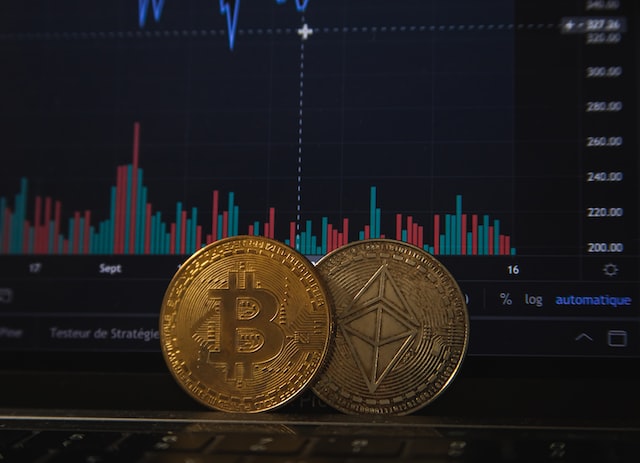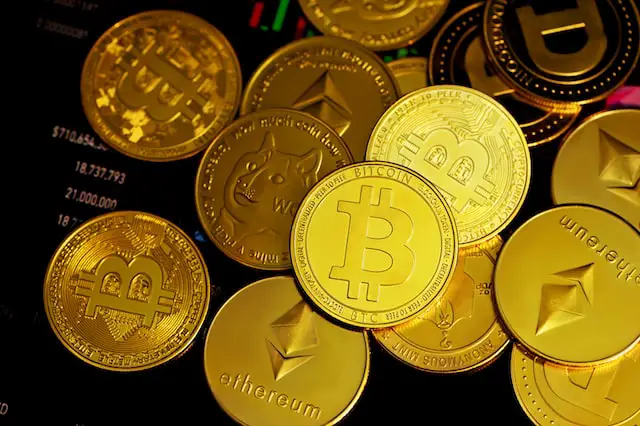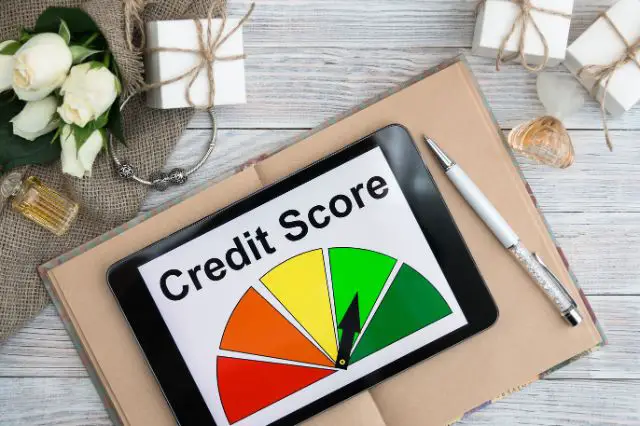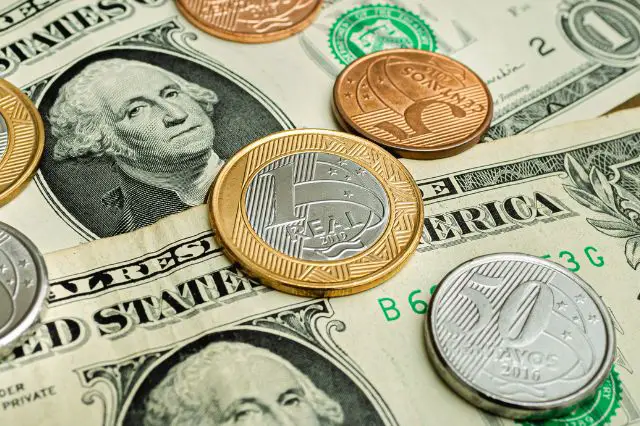Finance
Understanding How Crypto Staking Works

Despite the fact that most people find the cryptographic space to be incomprehensible, many continue to work in the field anyhow. The same can be said about staking cryptocurrency, but we are here to clarify it for you in the hopes that you will learn more about the cryptocurrency industry and perhaps get anything from it.
What is it?
Crypto staking is a process in which an individual holds and locks up a certain amount of cryptocurrency as collateral to support the network’s consensus mechanism, usually in a proof-of-stake (PoS) blockchain. In return for staking their coins, the individual earns rewards in the form of new coins for helping to secure the network and validate transactions. The reward for staking is proportionate to the amount of cryptocurrency staked, so the more an individual stakes, the higher the reward. Crypto staking is a way to participate in the consensus process of a PoS blockchain network and earn rewards for doing so.
Essentially, having some cryptocurrency earns you money. There are many different places you can go if you want to try out staking yourself. You can check out the best crypto staking platforms and see which one seems suitable for you. Also, you can combine your holdings with the funds of other investors when you join a staking pool. It should be said that trust is needed between partners since you are planning on playing the long game. Depending on how much money you put into the pool, you get a share of the money the pool makes.
How does it function?
Depending on how much you want to learn about cryptocurrencies, staking principles might be simple or complex. You should be aware that while keeping some coins might yield you money, the risk increases the longer you retain them. You should understand everything you can about decisions if you want to know what choices are wise and which ones are not. Before you begin staking, you must be comfortable with the principles.
First of all, if you are a cryptocurrency holder, you must lock up your coins as collateral. You will receive benefits for staking in the form of freshly created coins or transaction fees. The minimum stake requirement must be met in order to stake, and a validating node must be running in order to validate transactions and add new blocks to the network.
The likelihood of being chosen to validate a block and get rewards increases as your stake amount increases. The act of staking contributes to network security since it makes the network more decentralized and resistant to 51% assaults the more nodes participate.
You earn passively
Here are the procedures for passively generating money using cryptocurrency staking:
- Select a stable cryptocurrency, like Cardano, Tezos, or others.
- Get a suitable wallet, such as a Ledger or Trust wallet, to store your coins.
- Purchase the desired cryptocurrency, then add it to your wallet.
- Activate staking in your wallet to have your coins sent to the network’s support automatically.
- Part of transaction fees or newly minted coins are frequently created as prizes, so be patient and wait for them.
The size of your investment, the level of network engagement generally, and the state of the market are just a few of the variables that affect rewards.
It helps with projects you like
Staking has the additional benefit of enhancing the blockchain project’s effectiveness and security. Staking also increases the blockchain’s ability to process transactions and its ability to fend off threats. Consider a scenario in which one of your friends wants to introduce a cryptocurrency initiative. You and your acquaintance will benefit from the operation’s blockchain expanding gradually if you support it. You can enlist the aid of numerous of your pals, but in this situation, it’s critical that you can all be trusted.


You need the technical know-how
Tokens for cryptocurrencies are typically erratic. Cryptocurrencies that were formerly highly valued could quickly become the least valuable. So, before we can understand the risks of crypto staking, we must first comprehend the overall risks of investing in digital assets. Being able to participate in these transactions requires sufficient technical understanding, which is a major issue for many beginners. The majority of newcomers to the cryptocurrency market find understanding cryptocurrencies to be a complicated subject.
Users may find it challenging to evaluate the possible risks in the trades they make as a result of this intricacy, particularly while staking cryptocurrency. Also, running a validator node to stake a cryptocurrency requires technical know-how to make sure that the staking process is uninterrupted. For nodes to maximize staking revenue, they must always be online. Additionally, if a validator node (accidentally) misbehaves, you can be penalized, which would reduce your overall staking profits.
Market risk
The first and most evident risk associated with cryptocurrencies is market risk. Even though all markets are prone to volatility, some assets and securities are far more so. Expect short-term price variations to vary significantly since the price of any asset is merely a reflection of the price at which people are prepared to sell or purchase it at any given moment in time. Many people have come into contact with these problems during the previous six months.
People with weak hearts will find it challenging to stay unaffected by the stress of dealing with cryptocurrencies. Given that many users frequently check their wallets to see how the value of their tokens fluctuates, you should think twice before giving it a try.
There is a lock-in duration
You must accept a minimum lock-in duration before you can stake cryptocurrency. You cannot access your pledged cryptocurrency during this time; it is kept locked on the network. Additionally, the process of un-staking the currency typically takes a very long time, and if prices fall during that time, you can end up withdrawing tokens that are much less valuable than when you staked them.
Dealing with money may be a highly stressful endeavor, and those who don’t know when and where to invest properly find it difficult to make any money. For this reason, understanding it is crucial if you want to succeed. If you’re searching for passive income, investing in cryptocurrencies can be quite lucrative.
Finance
4 Reasons You Should Care about Your Credit Score


If applying for a small business loan, your credit score can make or break your chances of securing one and getting a good interest rate.
Whether starting a business, looking to expand, or requiring funds for other purposes, you may one day need a business loan. Getting the best terms possible is a priority. That’s one reason to consider your creditor score and how it’ll factor into your search for a business loan.
Here are four reasons your credit score matters. You’ll also see how to get help with credit score disputes if you can’t resolve such conflicts independently.
1. Credit Score Determines If You Get a Business Loan
If getting a business loan is a make-or-break issue for your company, you should be mindful of your credit score. Remember that lenders aren’t in the business of offering loans to people who present a substantial risk.
So, if your credit score is less than optimal, lenders could balk at lending you a loan or offer less money to reduce their risk. It’s a good idea to consider your credit score to see if you can realistically qualify for a business loan with reasonable terms.
Otherwise, you may have to explore other options to secure money for business needs. There are alternative ways to get funds. But it might mean accepting a higher interest rate or onerous terms.
2. Credit Score Affects Your Interest Rate
Even if you qualify for a business loan, you may not get a good interest rate if your credit score isn’t good. Even a few percentage points more could translate into paying back thousands more to complete your payback obligations.
You’ll have to consider whether you can afford to shoulder a high premium in interest payments to get a business loan you might not qualify for otherwise.
If forced to pay higher interest for a business loan, the lender may have other stringent terms. You should carefully consider the particulars before signing on the dotted line.
3. Credit Score Can Impact How Much You Qualify for
As was mentioned above, your credit score can influence how much a lender is willing to lend. If your credit is not good enough to grant you the amount you want, a lender may offer a business loan for a fraction of that sum.
That can happen when a lender doesn’t feel comfortable enough lending you more than a specific amount. It’s about limiting the potential fallout if you’re unable to pay your loan.
When a lender looks at your finances, it’ll know how much you can afford to pay back. If it determines you’ll struggle to pay back the amount you request, it might simply offer a lower amount more in line with your cash flow.
4. Credit Score Can Throw a Wrench in Your Business Plans
You may struggle to grow your business if you desperately need a business loan but have poor credit. In fact, you may face financial problems that threaten the long-term viability of your company. So, your credit score can make or break your business. Don’t allow bad credit to throw a wrench into your plans. If possible, improve your credit score before applying for a loan.
While a bad credit score can cause problems for your business, there are times when your credit report may include inaccurate information. Whether the credit report hasn’t been updated or includes completely false information, you may struggle to get the information corrected.
If you can’t make progress on this front, you may need to speak to a lawyer. A legal professional experienced in helping clients involved in credit score disputes can be a godsend.
Finance
How to Exchange USD Coins to Brazilian Reals


In today’s global economy, the ability to swiftly and securely exchange digital currencies like USD Coins (USDC) to traditional currencies such as Brazilian Reals (BRL) is more important than ever.
Whether it’s for investment purposes, remittance, or paying for services in Brazil, having a reliable platform can make all the difference.
Understanding USD Coins (USDC)
USDC is a type of cryptocurrency known as a stablecoin, designed to maintain a consistent value by being pegged to a stable asset, in this case, the US Dollar. This ensures minimal volatility, making USDC an ideal digital currency for transactions and savings.
Its creation and circulation are backed by equivalent USD reserves, offering a secure and transparent way to handle digital funds.
Why Exchange USDC for BRL?
There are numerous reasons one might need to convert USDC to BRL. For Brazilians living abroad, sending remittances back home can be more cost-effective and faster using USDC.
Investors might see opportunities in the Brazilian market, or freelancers may prefer payment in BRL. Whatever the reason, the need for a seamless exchange process is clear.
Preparation for Exchange
Before initiating an exchange, users should ensure they have a registered account and verify their digital wallets are compatible with both USDC and BRL transactions.
Ensuring you have the correct wallet addresses and sufficient funds for the exchange will streamline the process.
How to Use NovaChange.cc for Exchanging USDC to BRL
Exchanging USDC to BRL is straightforward:
- Log in to your NovaChange.cc account.
- Navigate to the exchange section and select USDC as your source currency and BRL as the target.
- Enter the amount of USDC you wish to exchange.
- Provide your BRL-receiving wallet or bank account information.
- Review the transaction details, including any fees and the exchange rate.
- Confirm the transaction.
- The platform is designed to guide users smoothly through each step, ensuring a hassle-free exchange experience.
What to Expect after the Exchange
Upon completing the exchange, users can expect to receive their BRL funds in their specified account or digital wallet within a predetermined time frame, usually within a few hours to a day, depending on the processing times and any necessary security checks.
Safety and Security Tips
Ensuring the security of your transactions is paramount. Always double-check wallet addresses, use secure internet connections, and verify the authenticity of the exchange platform.
The future of crypto exchanges in Brazil is on a trajectory of remarkable growth and innovation. As one of Latin America’s leading economies, Brazil has witnessed an exponential rise in cryptocurrency adoption, driven by a combination of factors such as high inflation rates, currency devaluation, and a tech-savvy population.
This trend is further bolstered by Brazil’s progressive stance towards financial technology, which has laid a fertile ground for crypto exchanges to flourish.
A key factor shaping the future of crypto exchanges in Brazil is the regulatory environment. The Brazilian government and financial regulators have been working towards creating a balanced framework that ensures consumer protection without stifying innovation.
The recent moves to regulate cryptocurrencies as assets and the discussions around taxation reflect a maturing ecosystem. This regulatory clarity is expected to attract more participants into the market, from individual investors to institutional players.
Technological innovation will continue to drive the evolution of crypto exchanges in Brazil. Features such as enhanced security protocols, faster transaction speeds, and improved user interfaces are becoming standard.
Moreover, the integration of blockchain technology into traditional finance, known as DeFi (decentralized finance), presents a new frontier. Brazilian crypto exchanges are at the forefront of adopting these technologies, offering sophisticated services such as yield farming, staking, and tokenized assets.
The future will also see Brazilian crypto exchanges diversifying their offerings. Beyond the basic buy and sell functions, these platforms are expanding into a wider array of financial services.
This includes crypto-based lending and borrowing, insurance, and even digital asset estate planning. As the market matures, expect to see more specialized services catering to the needs of different user segments.
User education remains a critical component of growth. With misconceptions and skepticism still surrounding cryptocurrencies, Brazilian exchanges are investing in educational initiatives to demystify crypto for the general public.
This is pivotal not only for driving adoption but also for fostering a safer investment environment. As more Brazilians become knowledgeable about cryptocurrencies, the user base of crypto exchanges is set to expand significantly.
Another significant trend is the integration of crypto exchanges with traditional banking services. This blurring of lines between conventional finance and crypto markets means easier access for everyday users.
The ability to instantly convert cryptocurrencies to fiat (and vice versa), use crypto debit cards, and pay for goods and services directly with digital assets are just a few examples of this integration in action.
Conclusion
The ability to exchange USDC for BRL efficiently and securely is crucial for many individuals and businesses involved in the digital economy.
With platforms like https://www.novachange.cc/exchange/usdc-trc20-to-pix-brl/, the process is not only straightforward but also secure, making it an excellent choice for anyone looking to convert their digital currency into Brazilian Reals.
Finance
Empowering Financial Decisions: Tools That Make a Difference


In an era where financial literacy is key, this comprehensive guide explores the top financial tools available today, designed to assist users in making informed financial decisions. From innovative budgeting apps to sophisticated investment platforms, we delve into how these tools are transforming personal finance.
Introduction
In the fast-paced world of finance, staying informed and making sound decisions can be daunting. The rise of digital technology has led to a proliferation of financial tools aimed at simplifying this process. Whether it’s managing daily expenses, planning for retirement, or investing in the stock market, there’s a tool for every financial need.
This article serves as a guide to some of the most influential financial tools in the market, providing insights into how they can empower users to take control of their financial future.
Budgeting and Expense Tracking Tools
Navigating Your Financial Journey with Smart Budgeting Apps
In the realm of personal finance, the adage “knowledge is power” rings particularly true. Budgeting and expense tracking tools are at the forefront of providing this knowledge, offering users a clear view of their financial landscape. Let’s delve into the world of these indispensable tools.
Overview of Budgeting Tools
Budgeting tools are digital solutions designed to help individuals manage their personal finances. They range from simple apps for tracking daily expenses to more comprehensive platforms that integrate various financial accounts for a holistic view. These tools work by aggregating data from bank accounts, credit cards, and other financial sources, providing users with real-time insights into their spending patterns, savings, and financial health.
Popular Budgeting Apps
1. Mint: One of the pioneers in the budgeting app space, Mint offers features like automatic categorization of expenses, budget creation, and credit score monitoring.
2. YNAB (You Need A Budget): YNAB focuses on a proactive budgeting approach, encouraging users to give every dollar a job, aiming to help with debt payoff and savings goals.
3. PocketGuard: For those who want a simplistic view, PocketGuard boils down finances to how much you can spend daily after accounting for bills and savings.
Each of these apps has unique features. For instance, Mint is renowned for its comprehensive overview, YNAB for its budgeting philosophy, and PocketGuard for its simplicity.
Benefits of Using Budgeting Tools
The advantages of utilizing budgeting tools are manifold:
– Improved Financial Awareness: Users gain a clear understanding of their spending habits, helping identify areas where they can cut back.
– Goal Setting and Tracking: Many apps allow users to set financial goals, such as saving for a vacation or paying off debt, and track progress.
– Alerts and Notifications: These tools can provide alerts for upcoming bills, low balances, or unusual spending, helping avoid fees or fraud.
– Convenience: With all financial information in one place, users can quickly make informed decisions without sifting through multiple statements.
Real-World Examples
– Case Study 1: Sarah, a freelance graphic designer, used a budgeting app to categorize her expenses and realized she was spending 30% of her income on dining out. By adjusting her habits, she was able to save more for her retirement fund.
– Case Study 2: John, who struggled with credit card debt, utilized YNAB to create a debt payoff plan. Within a year, he was not only debt-free but also had a clear understanding of his spending patterns.
In conclusion, budgeting and expense tracking tools are more than just digital assistants; they are fundamental pillars supporting the edifice of personal financial management. By providing clarity, control, and convenience, they empower users to make smarter financial decisions, paving the way for a more secure financial future. As we move into an era where financial literacy becomes increasingly vital, these tools stand as beacons of guidance and empowerment.
Section 2: Investment Platforms and Robo-Advisors
Democratizing Investing: Platforms That Make Investing Accessible to All
The landscape of investing has dramatically evolved with the advent of digital investment platforms and robo-advisors. These tools have made investment opportunities more accessible, understandable, and manageable for a broader range of people than ever before.
Introduction to Investment Platforms
Investment platforms are online services that allow individuals to buy, sell, and manage investments such as stocks, bonds, and mutual funds. They range from traditional brokerages to modern, app-based platforms.
Many offer educational resources to help users understand investing basics. The ease of access and the wealth of information available through these platforms have democratized investing, making it not just a pursuit for the financially savvy but for anyone with an interest in growing their wealth.
Comparison of Top Platforms
1. Robinhood: Known for its user-friendly interface, Robinhood caters to new investors with commission-free trades of stocks, ETFs, and cryptocurrencies.
2. Betterment: As a leader in robo-advising, Betterment provides automated investment advice based on user-defined goals and risk tolerance.
3. Vanguard: Renowned for its low-cost index funds, Vanguard appeals to long-term investors and offers a range of financial products and advisory services.
Each platform has its niche: Robinhood attracts those new to investing, Betterment serves those looking for automated guidance, and Vanguard appeals to those with a focus on long-term, cost-effective investing.
Role of Robo-Advisors
Robo-advisors are digital platforms that provide automated, algorithm-driven financial planning services with minimal human supervision. They make investment decisions using client data such as financial goals, risk tolerance, and time horizon. This technology democratizes high-quality investment advice, previously accessible only through high-priced financial advisors, making it available to the general public at a much lower cost.
Impact on Personal Investing
The rise of these platforms and services has had several significant impacts:
– Accessibility: Investing is no longer confined to those with deep pockets or extensive financial knowledge.
– Diversification: Users have access to a range of assets, allowing for better portfolio diversification.
– Education: Many platforms offer educational resources, empowering users to make informed decisions.
– Low Cost: Reduced overheads mean lower fees for users, maximizing their investment returns.
Real-World Impact
– Example 1: Emily, a college student, started investing in stocks through Robinhood with as little as $50, gradually building a diverse portfolio.
– Example 2: Michael, uncertain about choosing the right investments, turned to Betterment. The platform helped him build a tailored portfolio aligned with his retirement goals.
Investment platforms and robo-advisors have significantly altered the investing landscape. They have not only simplified the process but have also made it more inclusive, ensuring that more people than ever have the opportunity to grow their wealth and secure their financial future. In the next section, we’ll explore the world of credit management and financial health tools, crucial components in maintaining a sound financial profile.
Section 3: Credit Management and Financial Health Tools
Mastering Credit: Tools to Monitor and Improve Your Financial Health
Credit management is a critical aspect of financial health. In this digital age, a plethora of tools are available to help individuals understand, monitor, and improve their credit scores. These tools are essential for maintaining a good credit history, which is crucial for various financial activities like securing loans, applying for credit cards, or even renting an apartment.
Importance of Credit Management
Good credit management is essential for financial stability and flexibility. A strong credit score can lead to better interest rates on loans, higher chances of credit card approval, and more negotiating power. Conversely, poor credit can lead to higher interest rates and difficulty in securing loans. Effective credit management tools help in maintaining a good credit score and overall financial health.
Top Tools for Credit Management
1. Credit Karma: Provides free credit score updates, credit reports, and insights into factors affecting credit scores.
2. Experian: Offers credit monitoring, reports, and score improvement tips, along with identity theft protection services.
3. Mint: While primarily a budgeting tool, Mint also provides credit score monitoring and advice on improving credit health.
These tools help users understand credit factors, monitor changes in their credit score, and receive personalized advice for improvement.
Integrating Credit Tools with Financial Planning
Integrating credit management tools into overall financial planning is vital. These tools can provide alerts for potential issues, offer advice on improving credit scores, and help track progress towards financial goals. They also aid in understanding how different financial decisions, like paying off a loan or increasing credit card limits, can impact credit scores.
Success Stories
– Case Study 1: Linda used Credit Karma to monitor her credit score. She followed the recommended strategies to improve her score, which helped her secure a mortgage loan with a favorable interest rate.
– Case Study 2: After noticing a dip in his credit score through Experian, Mark discovered an error in his credit report. He was able to dispute it and restore his score, protecting his financial reputation.
These tools not only assist in day-to-day credit management but also play a pivotal role in long-term financial planning. By keeping a close eye on credit health, individuals can make more informed decisions and maintain financial stability.
In the next section, we will explore specialty financial tools and services, including paystubs generators, which offer unique solutions for specific financial needs and situations.
Section 4: Specialty Financial Tools and Services
Beyond the Basics: Exploring Niche Financial Tools and Services
In the diverse world of financial management, certain needs extend beyond general budgeting, investing, and credit monitoring. This is where specialty financial tools and services come into play, offering tailored solutions for specific scenarios. Among these, paystubs generators have emerged as a particularly valuable resource for freelancers, small businesses, and even individuals needing proof of income.
Introduction to Specialty Tools
Specialty financial tools cater to niche requirements that aren’t typically addressed by standard financial software. These include tools for tax preparation, invoice management, retirement planning, and more. They are designed to simplify complex tasks, provide specialized insight, or handle unique financial situations.
Role of Paystubs Generators
Paystubs generators are online tools that create paystubs for employees or contractors, detailing their wages, taxes, and deductions. These are especially crucial for:
– Freelancers and Contractors: Who may need to provide proof of income for loans or housing without having a traditional paystub from an employer.
– Small Business Owners: Who need to generate paystubs for employees efficiently and accurately.
– Individuals: Who may need to produce a paystub for personal record-keeping or financial verification.
These tools are not just convenient but also ensure compliance with financial documentation requirements.
Other Niche Tools
Other examples of specialty financial tools include:
– Tax Preparation Software: Designed to simplify the process of filing taxes, offering guidance on deductions and credits.
– Invoice Management Systems: Help businesses and freelancers manage billing and track payments.
– Retirement Planning Tools: Offer simulations and projections for retirement savings, helping users plan their financial future.
Integrating Specialty Tools into Financial Planning
Integrating these specialized tools into one’s broader financial strategy can significantly enhance overall financial management. For instance, a paystubs generator can be linked with budgeting tools to track income more accurately, or tax preparation software can be used in conjunction with investment platforms to understand the tax implications of investment decisions.
Real-World Application
– Example 1: Emma, a freelance writer, used a paystubs generator to provide proof of income when applying for a car loan, simplifying a process that would otherwise be complex for a self-employed individual.
– Example 2: A small business owner utilized invoice management software to streamline billing processes, saving time and reducing errors in financial records.
In summary, specialty financial tools and services, including paystubs generators, play a vital role in addressing specific financial needs. By providing targeted solutions, they not only streamline various financial tasks but also contribute to a more comprehensive and efficient financial management system. These tools, often overlooked, are essential cogs in the machinery of personal and business finance, ensuring that every financial aspect, no matter how niche, is well taken care of.
Conclusion: Harnessing the Power of Financial Tools for Empowerment and Growth
As we’ve journeyed through the diverse landscape of modern financial tools, from budgeting apps and investment platforms to credit management systems and specialized services like paystubs generators, one thing becomes clear: the power of these tools lies in their ability to democratize financial management and empower individuals at every level.
In today’s digital age, managing finances, once a daunting task reserved for experts, has become more accessible, understandable, and actionable for everyone. Budgeting and expense tracking tools bring transparency and control to our daily finances, investment platforms and robo-advisors open the doors to wealth creation for the masses, and credit management tools provide the means to safeguard and enhance our financial health. Moreover, specialty tools like paystubs generators address specific, often overlooked financial needs, adding another layer of empowerment.
The integration of these tools into our daily lives doesn’t just represent a shift in how we manage money; it signifies a fundamental change in our relationship with finance. No longer passive participants, we are now active managers of our financial destiny. Armed with the right tools, we have the power to make informed decisions, plan for the future, and achieve our financial goals.
As we continue to navigate the complexities of the financial world, the importance of leveraging these tools cannot be overstated. They are not just conveniences but necessities in crafting a secure financial future. Whether it’s through setting a budget, investing wisely, monitoring credit, or utilizing a paystubs generator for income verification, these tools collectively form a robust framework for financial empowerment.
In conclusion, the plethora of financial tools available today are more than mere aids; they are catalysts for change, empowering us to take charge of our finances with confidence and clarity. By embracing these tools, we open up a world of possibilities where financial stability and growth are within reach, and the journey towards financial literacy and independence becomes a rewarding one.
-



 Captions3 years ago
Captions3 years ago341 Sexy Captions to Fire Up Your Instagram Pictures
-



 Captions3 years ago
Captions3 years ago311 Night Out Captions for Instagram and Your Crazy Night
-



 Captions3 years ago
Captions3 years ago245 Saree Captions for Instagram to Boost Your Selfies in Saree
-



 Captions3 years ago
Captions3 years ago256 Best Ethnic Wear Captions for Instagram on Traditional Dress
-



 Captions3 years ago
Captions3 years ago230 Blurred Picture Captions for Instagram
-



 Captions3 years ago
Captions3 years ago275 Deep Captions for Instagram to Express Your Thoughts
-



 Quotes3 years ago
Quotes3 years ago222 Nail Captions for Instagram to Showcase Your Fresh Manicure
-



 Captions3 years ago
Captions3 years ago211 Laughing Captions for Instagram | Laughter Is the Best Medicine







